Hades exclusive: Supergiant explains why we love (and hate) roguelikes
We spoke to Supergiant to learn why Hades feels so compulsively playable
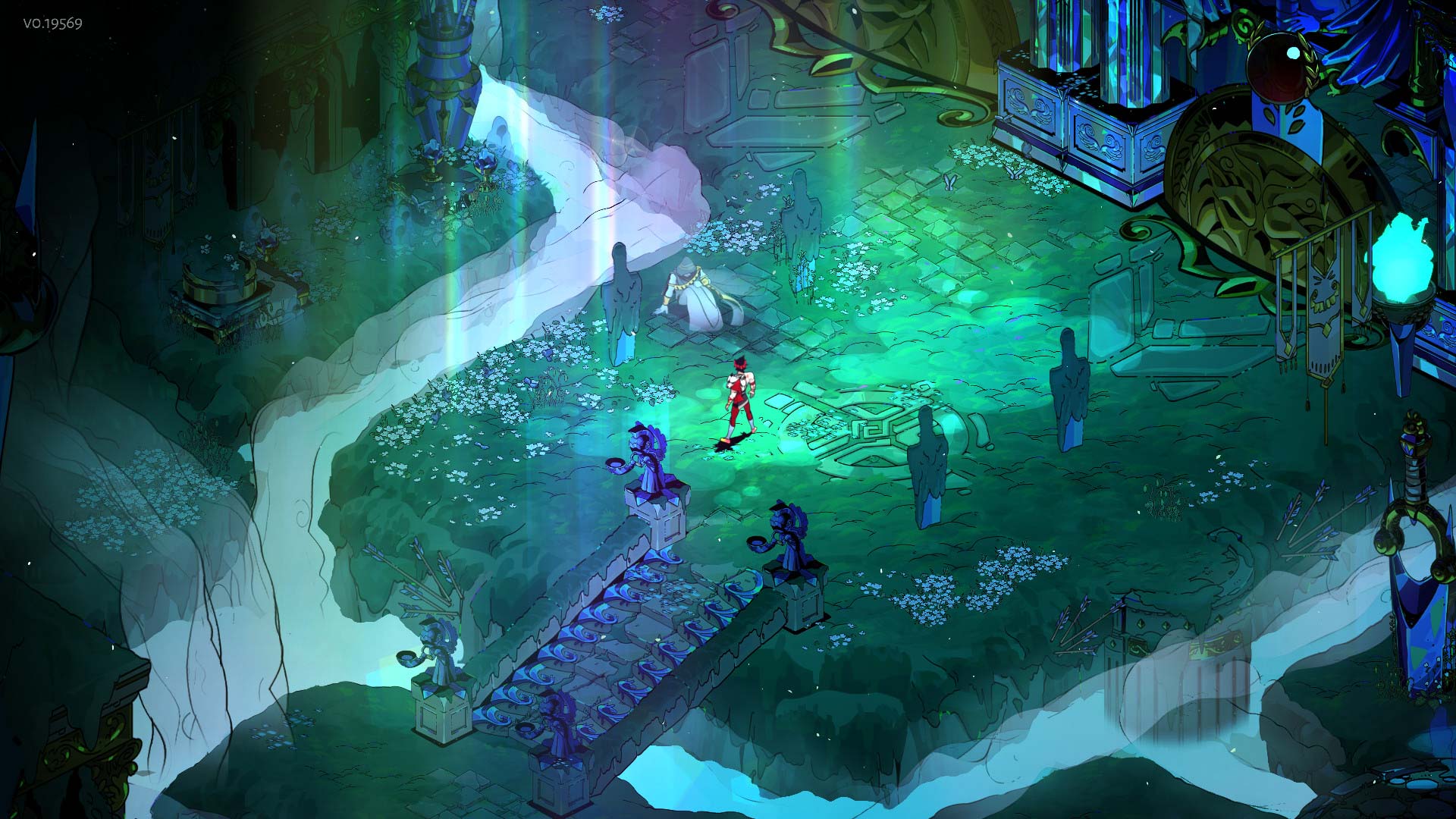
If you haven’t played Hades by now, you’ve probably at least heard of it. It’s one of the best Nintendo Switch games, one of the best games of 2020 and, since it’s now out on PS5 and Xbox Series X, arguably one of the best next-gen games overall. That’s not bad, considering that its developer, Supergiant, employs about 20 people, and had never made a roguelike before.
If you’ve yet to dive into Hades, it’s a masterclass in roguelike design, perfectly balancing carrot and stick. You play as Zagreus: son of the titular Greek god, whose fondest wish is to escape from his father’s hellish domain. As you battle your way through the Underworld, you’ll pick up various boons from the Olympian gods, which can empower you and your weapons. But if you die, you’ll find yourself back in Hades’ court, stripped of all your upgrades. Over time, however, you can purchase a handful of permanent skills to give yourself a fighting chance.
- Play the best Xbox Series X games
- Also try the best PS5 games
- Plus: The 10 best games to play after Ghost of Tsushima
This setup should be pretty familiar for roguelike fans, who encountered similar setups in Dead Cells, Slay the Spire, Spelunky, Darkest Dungeon and 20XX. Something about this punishing genre, which both encourages and demands mastery through repetition, has captured the gaming public’s imagination over the past few years.
(Technically speaking, Hades and some of these other games are roguelites, which let you invest in limited, permanent upgrades, but we’ll use the “roguelike” term for simplicity’s sake.)
To discover what makes this genre so compulsively playable, I spoke with Greg Kasavin, the creative director and writer of Hades. His experience developing Hades taught him a thing or two about why we love roguelikes, why we (sometimes) hate roguelikes and why we invariably keep coming back.
Q&A with Greg Kasavin, creative director of Hades
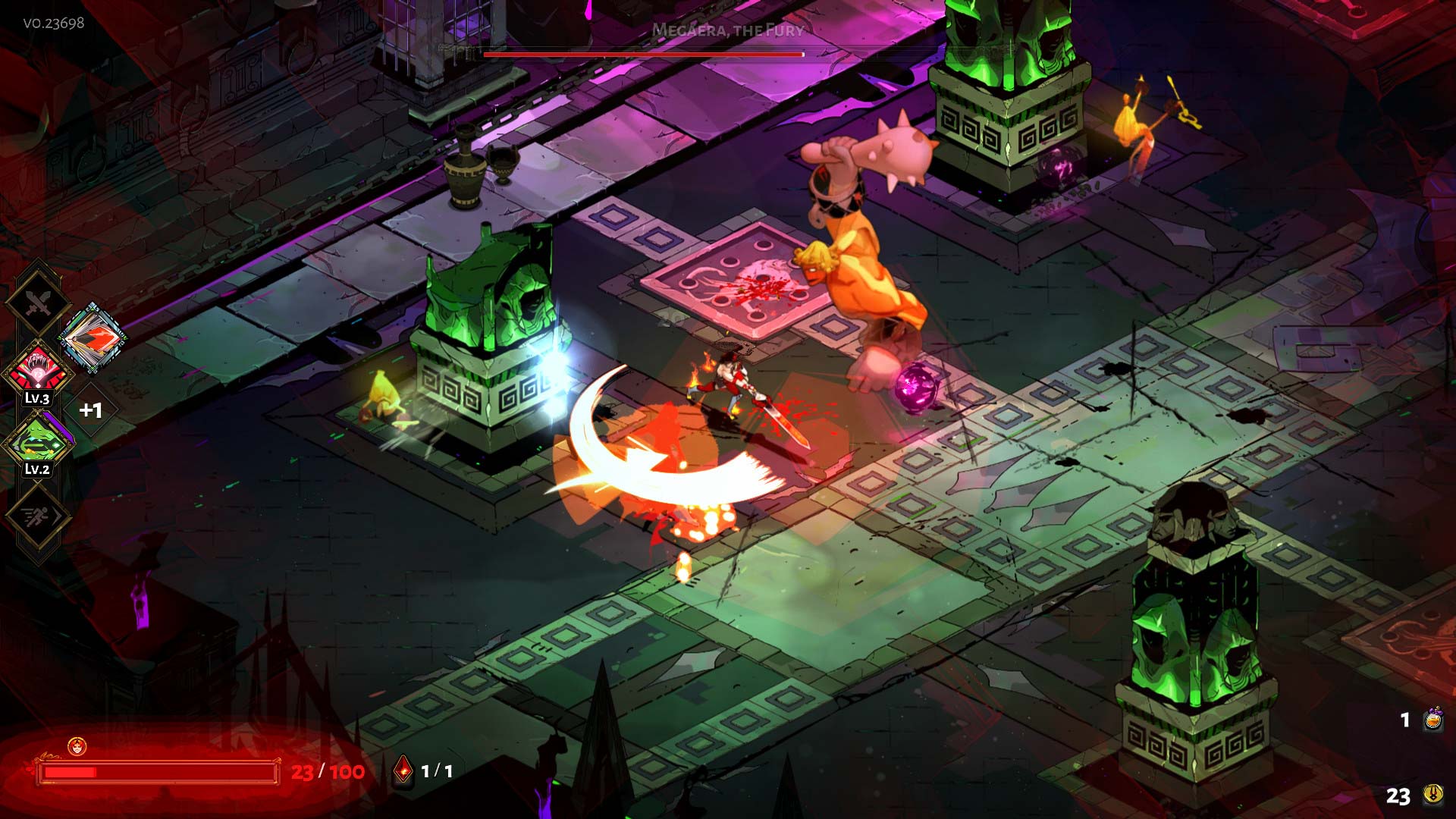
The following interview has been edited slightly for clarity and length:
Marshall Honorof: What appeals to players about roguelikes? How did you incorporate that appeal into Hades?
Sign up to get the BEST of Tom's Guide direct to your inbox.
Get instant access to breaking news, the hottest reviews, great deals and helpful tips.
Greg Kasavin: I think roguelikes are compelling in a bunch of different ways. First off, they embody the spirit of classic arcade games in that they generally lend themselves to quick, exciting sessions of play. You can enjoy roguelikes in bite-sized sessions or play them for long stretches at a time, or anything in between.
The randomness inherent to roguelikes reflects the sense of how, in reality, there are things we can and can't control.
Greg Kasavin, creative director
They can be challenging games that really test your mastery over the systems and mechanics. But I think the difficulty often associated with this genre is more a means to an end rather than a core feature, because the unique part of roguelike games is that they're different every time you play. They have to get you to start over pretty frequently so you can experience that defining trait!
I also feel like there's something even more fundamental to roguelikes that draws us to them, and even makes them feel oddly true-to-life: The randomness inherent to roguelikes reflects the sense of how, in reality, there are things we can and can't control. We all have to make do sometimes with the circumstances life deals us, and roguelikes are all about that. So, they can deeply resonate with us through the combination of good times and bad times that they create.
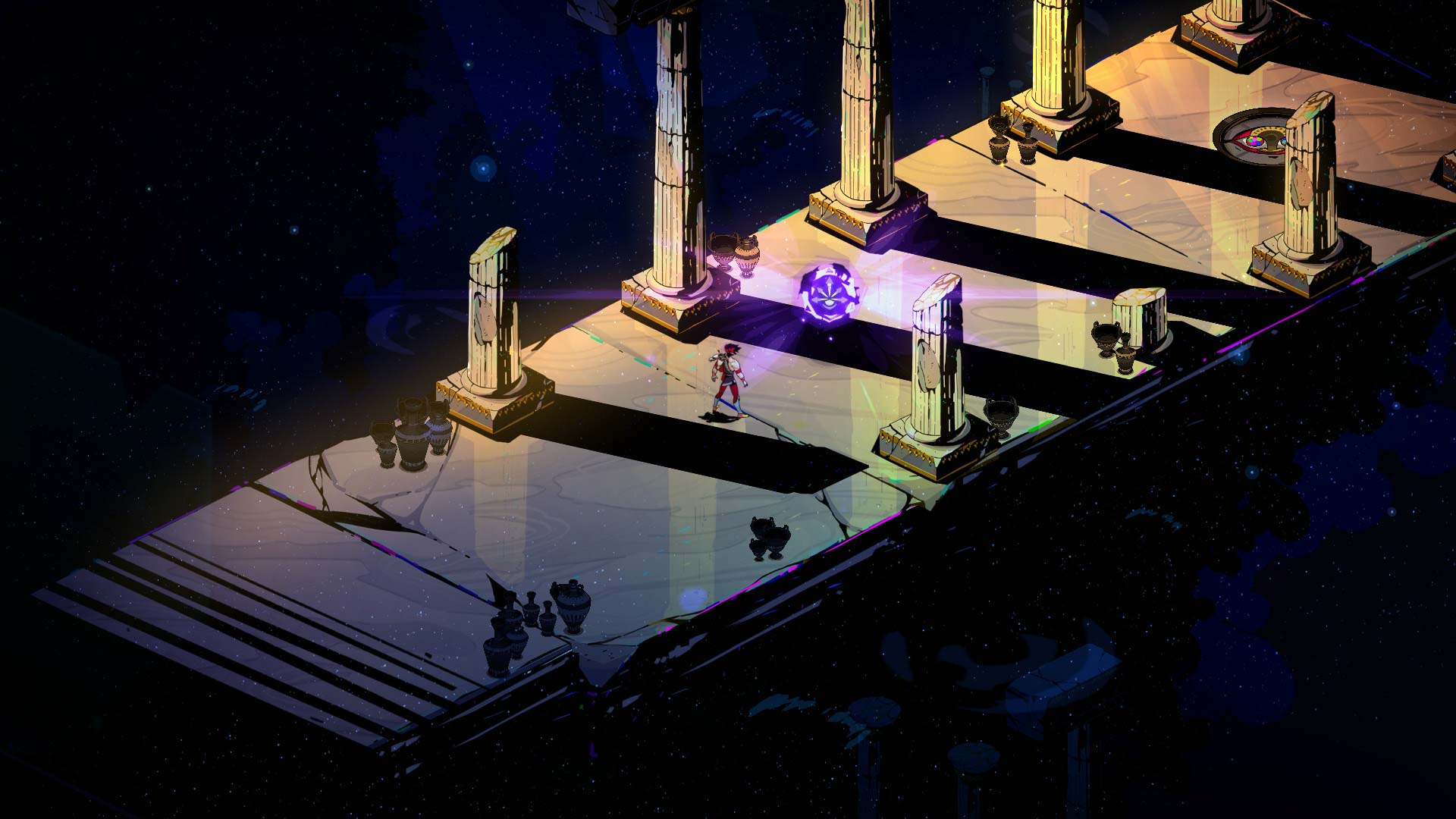
Having thought about all this for Hades, we wanted to make a roguelike that could open up the thrills of the genre to more players. The difficulty of such games is maybe a necessity, but not always a draw for everyone, as dying and starting over can be frustrating. By focusing on story and adding more elements of permanent progression, we tried to make sure the moment of dying and restarting was as interesting as possible. This was by no means an attempt to "fix" roguelikes, just a way for us to carve out a space for our game, since there are already so many fantastic games in the genre.
We also felt that the genre itself was a really interesting constraint for a story. Even in the most hardcore roguelike that wipes out all your progress between runs, you still carry forward your knowledge of the game. We wanted a narrative that acknowledged this, so that when you faced a boss either for the first time or the 20th time, the characters could act appropriately.
MH: Roguelikes can be both very punishing and very rewarding. How did you find the right balance between carrot and stick for players?
GK: Our mantra from the start was “every run counts,” meaning we didn't want Hades to be a game that ever felt like it was erasing all your progress, despite making you start over from the beginning each time you died. We knew this violated traditional conventions of roguelikes but felt that the genre had a lot of room to evolve in different directions. We specifically decided that we would have many channels of permanent progression, as well as an ongoing narrative that would evolve from one playthrough to the next. We wanted there to be no sense of a “game over” moment, but rather for player deaths to feel like a natural part of the structure.
We focused a lot on that moment of death, and sequencing the events that followed. Even the sorts of characters you meet, and the order in which you meet them, were in service of this idea. We wanted funny characters like Hypnos and Skelly to help take the sting out of dying, and reassuring characters like Achilles and Nyx to be there to urge you onward. The Mirror of Night is there to make you meaningfully more powerful from one playthrough to a next, so that through a combination of your own growing knowledge and experience, plus your character becoming stronger, you could get farther.
We wanted there to be no sense of a “game over” moment, but rather for player deaths to feel like a natural part of the structure.
Greg Kasavin, creative director
We wanted the game to be engrossing but were not interested in making it addictive. We avoided keeping players glued, with techniques like daily login bonuses. We wanted players to come back to the game because they found it exciting to play, enjoyed the story, and wanted to see the characters. For similar reasons, we wanted to make sure the story had a strong sense of resolution at various points, so that players could happily walk away from the game instead of feeling like they needed to keep playing in pursuit of some future goal. A problem that can exist with some endless games is that players play them to the point of boredom or burnout. Ideally, the experience would end on a high note for them, and a satisfying ending can help provide that.
MH: Hades was Supergiant's first roguelike. Which games did you use as inspiration?
GK: A bunch of different roguelike games inspired us. Dead Cells was an inspiration in terms of the raw quality of the moment-to-moment combat and traversal, plus it also showed the potential for the genre to branch out beyond some of its traditional conventions. Similarly, Slay the Spire is a really interesting and compelling take on roguelikes, and we were particularly drawn to that game's brilliantly structured endgame via its Ascension system, which inspired our Pact of Punishment system. Darkest Dungeon was also a spiritual inspiration in how it started off so strong on day one of its Early Access, and got better from there. Rogue Legacy, The Binding of Isaac, Enter the Gungeon, FTL: Faster Than Light and Spelunky are some other favorites. Of course, we draw a lot of inspiration from outside the genre as well.
MH: Why set a roguelike in a Greek myth setting? Does it have to do with the countless retellings of myths?
GK: You guessed it! The idea that myths are told and retold was the original spark of inspiration for why a Greek myth theme felt like a great fit for a roguelike game. We also felt that the Greek gods would be perfect as the sources of the player's power. There are plenty of games where you can get lighting powers or water powers and stuff like that, but we imagined how exciting it'd be if it were Zeus himself or Poseidon himself giving you their blessings. We wanted to have real characters in this game, rather than just a collection of spells or power-ups. These iconic gods could also help players quickly feel comfortable in the world of this game, so that they'd feel more willing to continue exploring, and discover some of the less familiar characters and ideas hidden in there.
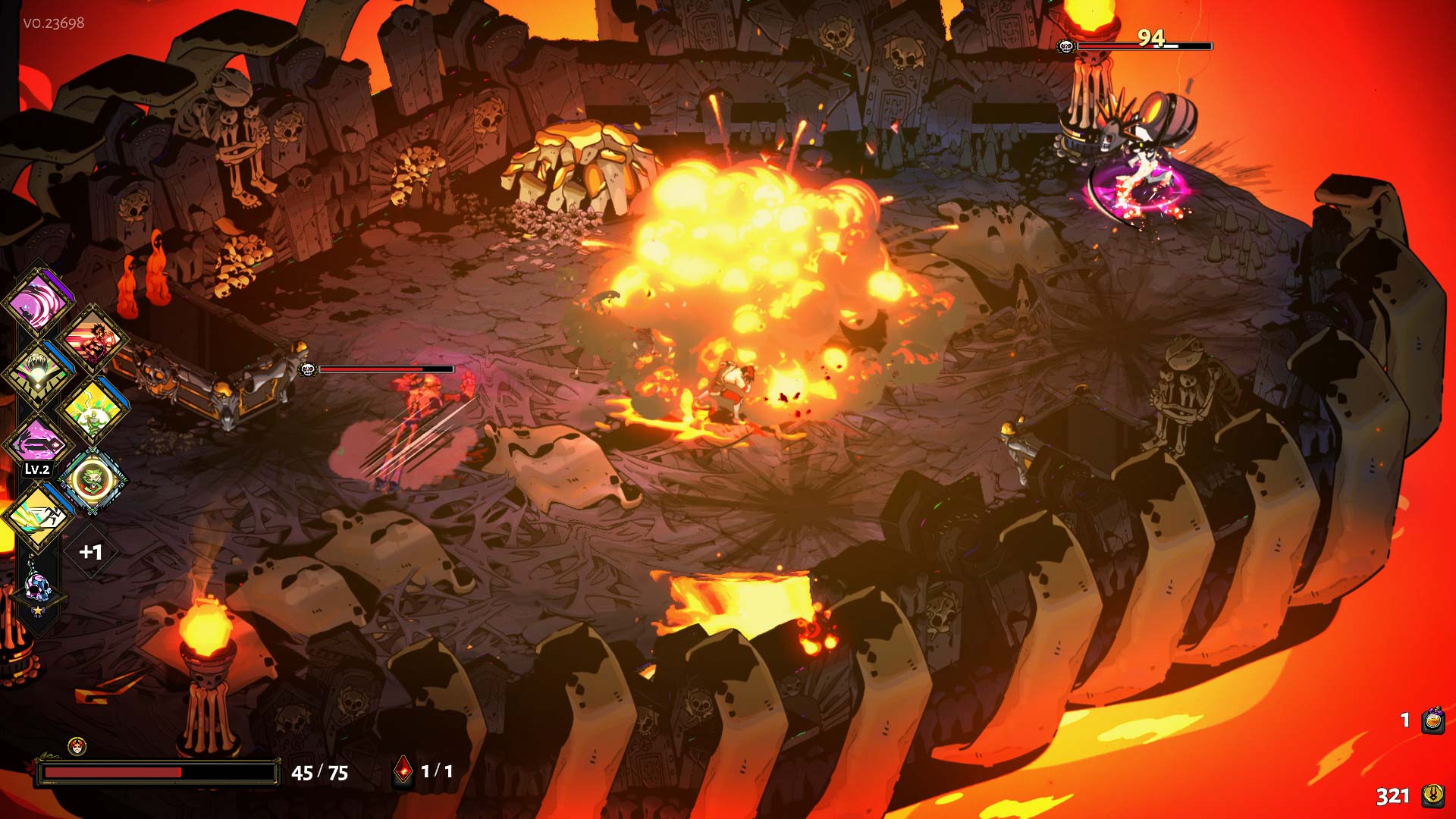
Lastly, we felt we had a specific point of view on Greek myth we wanted to explore, which was our focus on the family dynamics of the gods. Those lightning powers and the water powers are ultimately not what make gods like Zeus and Poseidon so interesting — rather, it's their complicated relationships and big personalities.
MH: What is the best feature you've seen in other roguelikes? What is the biggest misstep?
GK: It's hard for me to pick one best feature from a roguelike since there are so many inspiring examples. Offhand, I love how Dead Cells was able to marry roguelike randomness within a seamless Metroidvania structure, and how great that game felt to play. I mentioned Slay the Spire's Ascension system, which provides structured challenges to keep you invested long after your first successful clear. Returnal has an amazing, immersive presentation and fantastic action. Noita has a wonderfully dynamic world, with tons of systemic interactions and fully destructible terrain. Lots of roguelikes are doing great stuff.
I don't know what the biggest misstep of roguelikes is, as I love the genre as it is. I do think a lot about how the raw difficulty of many roguelike games is such a double-edged sword. It creates this paradox. Roguelikes have to kill you off so you can start over and experience the range of possibilities, but dying and losing all your progress can also be frustrating enough to make you not want to start over! So it's really important for roguelikes to live by their own rules and feel fair, and to reward the player's time somehow. There are many ways they can achieve this
An Olympian feat
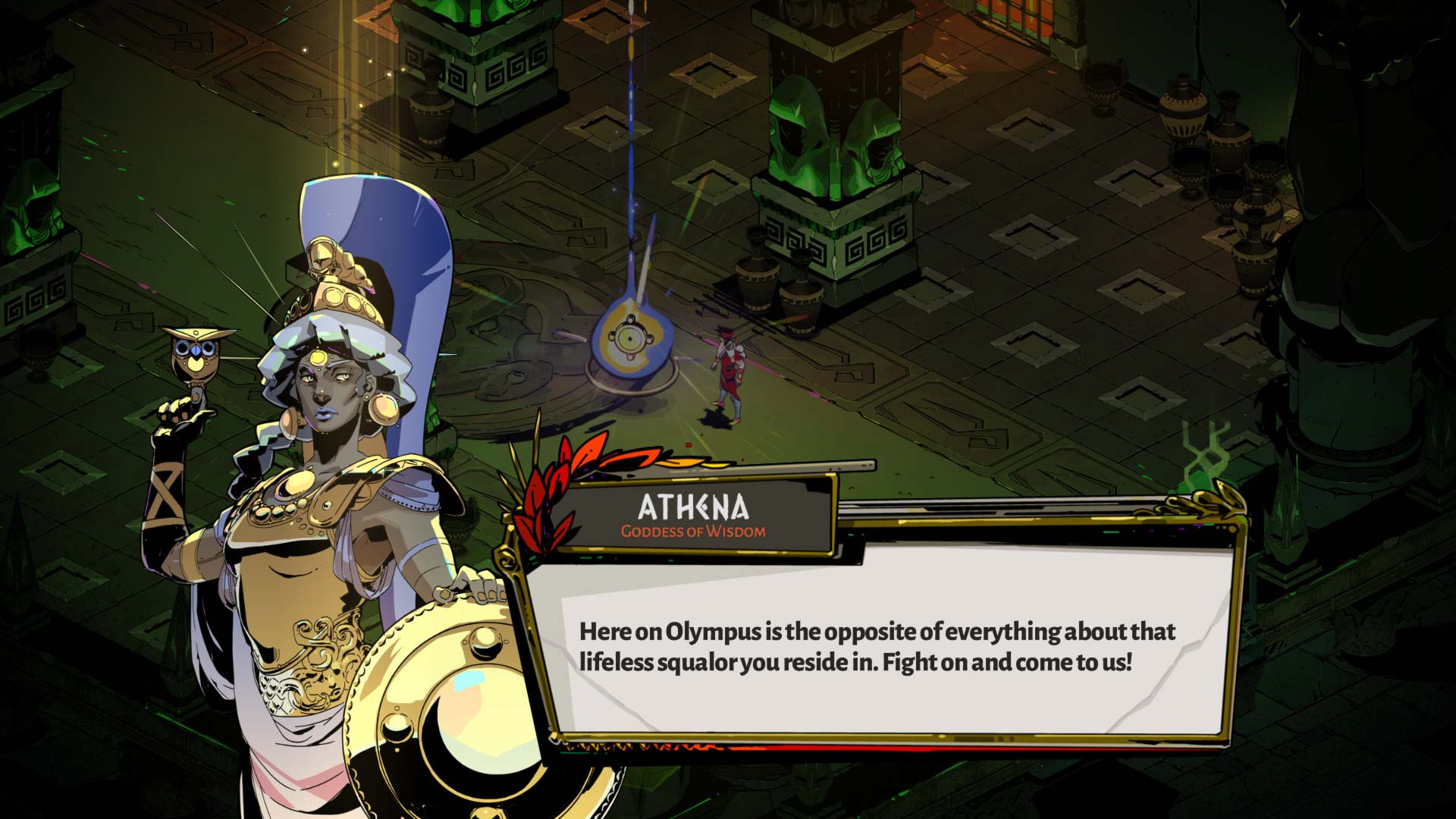
Anyone who’s played Hades has probably had a moment that made them want to walk away from the game and never pick it back up. For all the permanent progress you can make, the game is still incredibly difficult, and some runs are just not going to work out. Maybe you get the wrong combination of boons, or can’t find any worthwhile upgrades, or simply lose too much health in a trivial encounter.
For me, it was right after my 50th run. I still hadn’t beaten the game, despite being able to reliably reach the final boss. I had an excellent build and plenty of ways to heal. I pummeled the final boss’s first form, and did respectably well against his second — and then I dashed directly into a series of attacks and found myself back in Hades’ hall. I turned the game off, deciding that perhaps Hades, and roguelikes in general, just weren’t for me.
Roguelikes have been around for decades, and have branched off into many different directions ... Yet it's clear there's tons of room left to explore here.
Greg Kasavin, creative director
The next morning, I tried again, and completed my first run. The whole experience took half an hour, but my sense of satisfaction has yet to abate.
“Roguelikes have been around for decades, and have branched off into many different directions, inspiring iconic games like the Diablo series and spinning off into completely new formats like Dead Cells or Slay the Spire. Yet it's clear there's tons of room left to explore here,” Kasavin said.
“We're relative newcomers to the genre at Supergiant so it's all the more reason we're so grateful for the warm response to Hades, and we're very grateful to our predecessors both for paving the way with roguelikes, and for paving the way with Early Access games. Roguelikes are about moving forward with the knowledge you've gained, and we had an awful lot to learn from the genre's classics!”
Marshall Honorof is a senior editor for Tom's Guide, overseeing the site's coverage of gaming hardware and software. He comes from a science writing background, having studied paleomammalogy, biological anthropology, and the history of science and technology. After hours, you can find him practicing taekwondo or doing deep dives on classic sci-fi.

